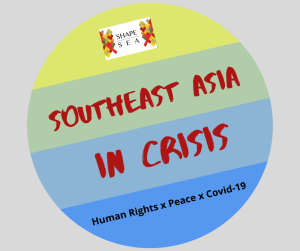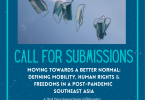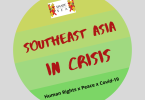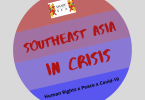Ross TugadeA lawyer in the human rights sector and is a Master of Laws student with the United Nations Interregional Crime and Justice Research Institute. The views reflected in this piece are solely of the author ™s.
 Within days from the passage of the Republic Act No. 11469, or the Bayanihan to Heal as One Act that statutorily declares a state of emergency and grants Philippine President Rodrigo Duterte emergency powers, the executive branch of the Philippine government was quick to defend its choice in designating retired military officials in charge of controlling the Covid-19 pandemic. This line of decision-making ought to alert everyone to the possible challenges that may emerge in the realm of respecting, protecting, and fulfilling fundamental rights and freedoms. Gaps in the Philippine government ™s approach ”especially in reference to human rights ”have to be necessarily filled by a perspective that factors in justice.
Within days from the passage of the Republic Act No. 11469, or the Bayanihan to Heal as One Act that statutorily declares a state of emergency and grants Philippine President Rodrigo Duterte emergency powers, the executive branch of the Philippine government was quick to defend its choice in designating retired military officials in charge of controlling the Covid-19 pandemic. This line of decision-making ought to alert everyone to the possible challenges that may emerge in the realm of respecting, protecting, and fulfilling fundamental rights and freedoms. Gaps in the Philippine government ™s approach ”especially in reference to human rights ”have to be necessarily filled by a perspective that factors in justice.
By characterizing the present emergency as a state of war against an unseen enemy and thus justifying the leadership role taken by ex-military officers, the executive effectively confirmed the militarized approach of the government to a public health crisis. In utilizing conflict-loaded language in this situation, a challenge to peacetime stability of society arises. A sustained militarized approach from the government poses problems in the enforcement of the State ™s human rights obligations in the immediate context, as well as in confronting questions of justice in the long run.
Various reports of law enforcement or local government abuse in Metro Manila and other parts of Luzon island have come to light after the imposition of restrictive measures on the freedom of movement. Another distinct feature of R.A. No. 11469, penalizing the spread of false information related to the pandemic, could also be a potential source of violations of the fundamental right to free speech and expression.
With waging war in combatting the pandemic going beyond a mere metaphor in the Philippines, the human rights sector must be ready to anticipate a surge in the number of violations committed in the name of protecting public health. The recent experience of the country with the Duterte administration ™s controversial war on drugs should yield valuable insights for the human rights community at this point, and should be applicable to yet another emerging pattern of large-scale human rights violations. For instance, there should be sustained efforts at recording reports of abuses.
Analogously using the tools associated with the substantive field of transitional justice could aid in anticipating the human rights crisis borne out of highly draconian State measures. Transitional justice consists of both judicial and non-judicial processes and mechanisms, including prosecution initiatives, facilitating initiatives in respect of the right to truth, delivering reparations, institutional reform and national consultations and must conform to international legal standards and obligations.
Such justice-oriented mechanisms are implemented in societies transitioning from conflict or a previous regime with a legacy of human rights abuses. While the traditional application of transitional justice is limited in its scope, there is potential in looking at the concepts of truth-telling, accountability, reparations, and institutional reform in the aftermath of Covid-19. The relevance of transitional justice approaches is especially magnified, given the nexus of the State ™s conceptualization of conflict as applied in the pandemic and an emerging pattern of State abuse of power. A transitional justice approach might also provide a handle in thinking about State responsibility in the international plane. Further, it could inform how we treat violations of rights other than civil and political rights, so as to include relevant economic or social rights.
Vulnerable communities like the poor, the disabled, or family members left behind must be provided with ample legal, social, and economic protection. For instance, legal accountability against government abuse must be guaranteed, coupled with restitution, compensation, or satisfaction. Their narratives, more importantly, must be preserved and perpetuated through human rights documentation in order to inform future human rights interventions. At any rate, restoring dignity should be at the heart of any institutional mechanism moving forward.
In the middle of these extraordinary times, the response demanded from those holding the line for human rights and the rule of law should be both creative and critical. Human rights, after all, retain their importance and primacy even in times of great public emergencies.
References:
Republic Act No. 11469 https://www.officialgazette.gov.ph/2020/03/24/republic-act-no-11469/
On the raison d ˜etre on the President ™s appointment of ex-military men to lead the implementation of the national Policy against Covid-19. https://pcoo.gov.ph/OPS-content/on-the-raison-d-etre-on-the-presidents-appointment-of-ex-military-men-to-lead-the-implementation-of-the-national-policy-against-covid-19/
Guidance Note of the UN Secretary General on United Nations Approach to Transitional Justice, https://www.un.org/ruleoflaw/files/TJ_Guidance_Note_March_2010FINAL.pdf





